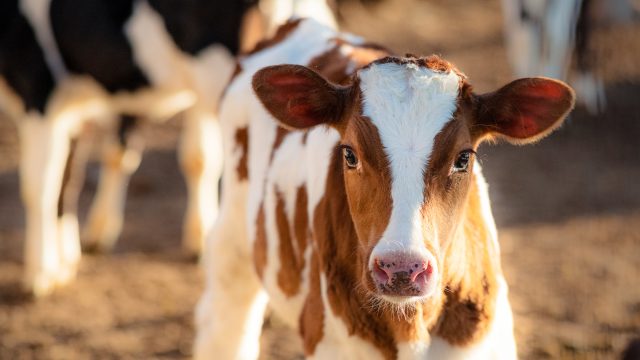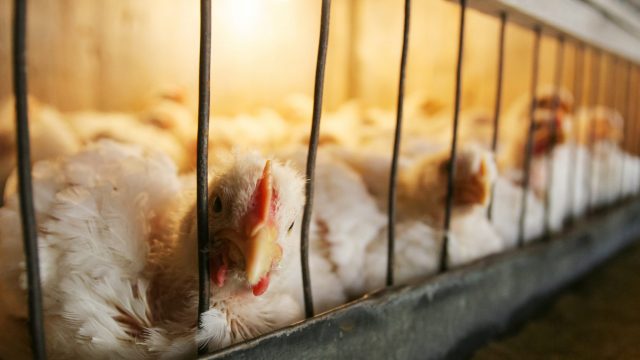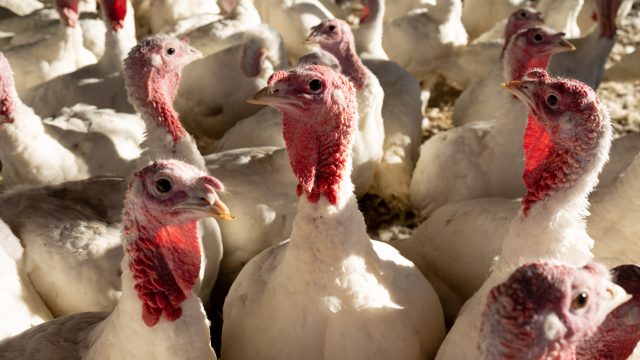
Spain Poised to Recognize Animal Sentience Within Civil Code, Clarifying Animals Are Not “Things”
By Nicole Pallotta, PhD, Senior Policy Program Manager
Contents
Introduction
On April 18, 2021, the Spanish Parliament approved consideration of a bill that would amend the country’s Civil Code to recognize animals are “living beings endowed with sentience” rather than “things,” specifically “moveable property.”
This approval is the first step toward updating animals’ legal status in the Spanish Civil Code — among other reforms consistent with that change. While there are additional steps before the bill is finalized, Spanish advocates are optimistic it will be adopted based on the overwhelming support it received in parliament.1 The nonprofit Observatorio Justicia y Defensa Animal (Animal Justice and Defense Observatory), which launched the #AnimalesNoSonCosas (Animals Are Not Things) campaign in 2015, notes:
The taking into consideration of this bill. . . is the first step in the parliamentary processing of this important reform that, once completed, will make the Spanish Legal System adapt both to the social reality of the moment and to the legislation of other countries in our environment . . . After almost 6 years of intense work, meetings, advice and proposals, the Observatory celebrates that the approval of this consideration has achieved such a broad consensus, and trusts that, this time, the parliamentary procedure can be completed so that this proposition is finally turned into law.
As explained in the text of the bill, Spain updated its Penal Code in 2003 to differentiate damage to companion animals from damage to objects, with this reform being further developed in 2015. However, the government failed to likewise amend the Civil Code. This was set to happen when a similar measure was unanimously approved in 2017, but that bill was never finalized due to the dissolution of Parliament in 2019. This meant the bill had to be reintroduced.
Echoing the optimism of the Animal Justice and Defense Observatory, La Vanguardia reports “the broad consensus achieved in the previous legislature makes us foresee that the proposal now presented . . . will go ahead.”
In addition to enshrining animal sentience within the Civil Code generally, the bill would also amend Spain’s Mortgage Law and Civil Procedure Law in ways consistent with the recognition that animals are different from other forms of property.
Recognition of Animal Sentience in Other Legal Systems
The bill text frames the proposed reform by noting it would bring Spain’s Civil Code into line with contemporary thinking on animals, as well as nearby legal systems. The bill observes that — along with the European Union and numerous existing regulations in Spanish law — several European countries have changed their legal codes to formally recognize animal sentience:
The reform of the legal regime for animals in the Spanish Civil Code follows the lines marked by other nearby legal systems, which have modified their Civil Codes to adapt them to the greater social sensitivity towards animals nowadays, and also to recognize their quality as living beings endowed with sensibility.2
Those legal systems include Austria, Germany, Switzerland, Belgium, and, most recently, France and Portugal. Several jurisdictions outside of Europe have also enshrined animal sentience as a legal principle, including the Australian Capital Territory in 2019, and New Zealand and the Canadian Province of Quebec in 2015.
[There are] many more laws around the world that explicitly recognize animal sentience or do so indirectly by defining animals with reference to sentience. These recognitions, by occupying a central place in animal laws worldwide, are proof of an emergent universal consensus among state actors that sentience serves as a gateway to according animals protection under the law. (Blattner 2019)
In the United States, animal sentience is not formally codified in federal legislation. However, at the state level — where most animal protection laws reside — some cruelty codes explicitly recognize sentience. Oregon is a notable example. In 2013, the Animal Legal Defense Fund helped enact legislation recognizing that “animals are sentient beings capable of experiencing pain, stress and fear” and that “animals should be cared for in ways that minimize pain, stress, fear and suffering.”3
Laws codifying animal sentience vary in terms of their efficacy. While laws that are more symbolic in nature can serve an important function, to have a practical impact it is important for sentience legislation to include an accompanying policy statement — i.e., acknowledging animal sentience while also stating what this means in more practical terms. This is exemplified in Oregon’s cruelty law mentioned above, which not only recognizes and defines animal sentience, but also includes a statement about minimizing the negative mental and physical states that animals can experience as a result of being sentient.
A New Legal Status?
Spain’s proposed reform would change animals’ legal status from “things” to “living beings endowed with sentience.” What does this mean?
As is currently the case with other legal systems that formally recognize animal sentience, animals would still be classified as property under Spain’s proposed law. However, the reform would essentially create a third category — something akin to “living property” — which differentiates nonhuman animals from human beings but also acknowledges the fundamental difference between animals and other types of property.
While the fact that animals are distinct from inanimate property seems self-evident and perhaps not in need of stating, it is frequently a point of confusion in the legal system. When courts are confronted with cases involving animals, the property designation, without further clarification, often leads to unjust outcomes that are inconsistent with the nature of animals as living, feeling beings.
Spain’s bill clearly decouples these two concepts in a section titled “The Classification of Animals and Property,” noting that when the property paradigm is applied to animals, their nature, well-being, and sentience must be taken into account:
Animals are living beings endowed with sensibility. The legal regime of goods and things shall only be applicable to them insofar as it is compatible with their nature and with the provisions for their protection [emphasis added].
The owner, possessor or holder of any other right over an animal must exercise his or her rights over them and his or her duties of care with respect for their quality as a living being endowed with sentience, ensuring their well-being according to the characteristics of each species and respecting the limitations established in this and the other regulations in force [emphasis added].
The bill further notes that earlier versions of sentience legislation in Europe defined animals by what they are not (i.e., animals are not “things”). However, more recent versions — including Spain’s proposal — define them according to what they are (i.e., “sentient beings”). This formulation places animals in a legal category distinct from inanimate objects but also different from other forms of life, e.g. people and plants:
Although in the first reforms of the European Civil Codes (Austria, Germany and Switzerland), the ‘negative’ formulation was used, in the sense that animals are not things or goods, the more recent formulas of the French and Portuguese Civil Codes, which prefer a ‘positive’ description of the essence of these beings, which differentiates them, on the one hand, from persons and, on the other, from things and other forms of life, typically plants.
Practical and Symbolic Impacts of Sentience Legislation
Efforts to codify legal recognition of animal sentience have sparked debate about whether such reforms have a practical effect or are merely symbolic. Spain’s bill makes clear that sentience is a legal principle that must guide law and policy regarding animals in the country. In other words, the reform is not intended to be merely symbolic.
While this stated intent is promising, whether the proposed change will have a practical impact remains to be seen. However, even “merely symbolic” laws can have a positive societal effect in terms of signaling4 and shaping social norms,5 as well as providing courts with legislative statements that can support decisions favorable to animals’ well-being and interests — even if this has yet to widely happen.
Therefore, sentience laws can be viewed as laying the foundational groundwork for future reforms even if practical impacts thus far appear to be minimal or non-existent. Similarly, some argue that sentience should be considered a basic principle in animal law and that, while not an end point, it can function as a baseline.6
Spain’s bill does include a general policy statement that animal sentience must be a guiding principle for the country’s entire legal system, which is a good first step:
The reform affects, in the first place, the Civil Code, with a view to establishing the important principle that the nature of animals is different from the nature of things or goods, a principle that must preside over the interpretation of the entire legal system.
Spanish animal lawyer Nuria Menéndez de Llano likewise told El Pais, “the most important thing . . . is that the Civil Code is a norm from which the rest of the legal system draws.”
In Spain’s case, the move to change animals’ legal status from “things,” or “moveable property,” to “sentient beings” in the Civil Code comes with other proposed changes as well. These reforms are more concrete, and flow from this status shift.
Other Reforms: Animal Custody, Seizure for Unpaid Debts, Damages
In addition to formal recognition of animal sentience, the proposal under consideration would amend to Spain’s Mortgage Law and Civil Procedure Law in ways consistent with this change.
For example, under Spain’s current Mortgage Law, both companion animals and farmed animals can be seized as quantifiable assets in the case of unpaid debts. This bill prohibits the practice of extending mortgages to animals.
As reported by El Pais: “Until now, animals were equated to a car or any other property that could be seized or mortgaged depending on its economic value, without taking into account their welfare or protection.” Under the proposed amendment, income generated from animals can still be withheld if a person has a debt, but the animal herself cannot be seized as an asset.
The bill likewise amends Spain’s Civil Procedure Law to distinguish animals from other types of property — such as furniture or other material assets — typically divided in cases of marital dissolution. In Spain, as in many jurisdictions, due to animals’ status under the law as property, the guiding legal principle in animal custody disputes is generally ownership rather than the best interests of the animal.
However, courts — in some cases guided by legislatures — are increasingly taking the animal’s interests or care into account rather than applying a strict property analysis in custody disputes. Spain’s amendment directs courts in cases of divorce to entrust the care of an animal to one or both spouses, taking into account “the welfare of the animal regardless of the ownership of the animal” [emphasis added]. Five states in the U.S. have thus far passed similar legislation: Alaska, Illinois, California, New York, and Maine.
Finally, the bill provides for recovery of both economic and non-economic damages in cases of injury to an animal. It allows for veterinary medical expenses to be recovered by someone who rescues an injured or abandoned animal — even beyond the market value of the animal. It also allows non-economic damages in cases of an injury to a companion animal that causes either death or serious injury, including mental harm, to the animal:
Expenses for the healing and care of an animal injured or abandoned by a third party are recoverable by whoever paid them insofar as they have been provided and even if they exceeded the value of the animal. In the event that the injury to a pet animal has resulted in its death or in a serious impairment of their physical or psychological health, both its owner and those who live with the animal are entitled to compensation for the moral damage caused.7
Conclusion
Media coverage of animal law news is frequently misleading. Headlines — focused less on accuracy than click potential, and often not written by the authors themselves — are the worst offenders and tend to use hyperbolic descriptions out of sync with the actual development being reported.
This headline for a news story on Spain’s legislative proposal is illustrative: “Spain to give pets the same rights as humans, an animal welfare breakthrough in the home of bullfighting.” The subheading further states: “Spain has given pets the same legal status as humans in a sign of growing support for animal rights in the home of bullfighting.”
While the text of the article itself is accurate, Spain’s sentience bill does nothing remotely close to giving companion animals the same rights as humans. While it is an important foundational step, it is a limited reform.
The fact that most animals are sentient — meaning simply they have the capacity to be aware of feelings and sensations — is commonsense and scientifically supported.8 Legal codification of this basic principle may temper the fact that animals are still generally classified as property under the law and are frequently treated by courts as such.
Sentience recognition can help carve out special space for animals between legal personhood and property, potentially paving the way for the former while in the interim providing a corrective to the inherent ambivalence of placing living beings in the same legal category as inanimate objects. While criminal cruelty laws are an implicit recognition that animals are sentient and fundamentally different from “things,” explicit recognition of this fact, particularly in the civil realm, can only help bring clarity — and greater justice — to legal matters involving animals and their well-being.
Further Reading
- Europa Press. “All Congress except Vox supports the law so that animals stop being ‘things.’” La Vanguardia. April 20, 2021.
- Animal Legal Defense Fund. “Critical Caselaw: Judicial Recognition of Animal Sentience.” (Webinar with further resources, including a discussion guide.) Sept 17, 2020.
- Kelly, Ross. “Recognition of animal sentience on the rise.” Veterinary Information Network. May 14, 2020.
- Blattner, Charlotte. 2019. “The Recognition of Animal Sentience by the Law.” Journal of Animal Ethics. 9(2): 121-136.
- Dunn, Lora and David B. Rosengard. 2017. “A Dog Is not a Stereo: The Role of Animal Sentience in Determining the Scope of Owner Privacy Interests under Oregon Law.” Animal Law. 23: 451-478.
References
- The initiative — introduced jointly by political parties Unidas Podemos (United We Can) and Partido Socialista Obrero Español (Spanish Socialist Workers’ Party) — received support from every political party except the far-right Vox (Voice).
- The bill lists the following: “the Austrian reform of March 10, 1986; the German reform of August 20, 1990, followed by the elevation of animal protection to constitutional rank in 2002 with the introduction of Article 20 a) in the Basic Law; the regulation in Switzerland, a country that also includes the protection of animals in its Constitution, and which amended the Civil Code and the Code of Obligations for this purpose; the Belgian reform of May 19, 2009; and the two most recent ones: the French reform of May 16, 2009, and the French reform of February 16, 2015 and, particularly because of its proximity to the present one, the Portuguese Law of 3 March 2017, which established a legal status for animals and amended its Civil Code, Code of Civil Procedure and Criminal Code.”
- For more on Oregon’s sentience law, see: Dunn, Lora and David B. Rosengard. 2017. “A Dog Is not a Stereo: The Role of Animal Sentience in Determining the Scope of Owner Privacy Interests under Oregon Law.” Animal Law. 23: 451-478.
- “In addition to the role of protection and coordination, law sometimes sends a signal about the type of conduct law-makers desire. The content of the signal may indicate government priorities and the future direction of policy.” (Yu, Guanghua. 2010. “The Other Roles of Law: Signaling, Self-Commitment and Coordination.” Australian Journal of Asian Law. 12: 106-137.)
- “Law can work expressively, not so much by shaping independent individual attitudes as by shaping group values and norms, which in turn influence individual attitudes.” (Nadler, Janice. 2017. “Expressive Law, Social Norms, and Social Groups.” Law & Social Inquiry. 42(1): 60–75.
- See for example: Blattner, Charlotte. 2019. “The Recognition of Animal Sentience by the Law.” Journal of Animal Ethics. 9(2): 121-136.
- “Non-pecuniary” is an alternate translation for the word “moral” in this context.
- Proctor, Helen S., Gemma Carder, and Amelia R. Cornish. 2013. “Searching for Animal Sentience: A Systematic Review of the Scientific Literature.” Animals. 3(3): 882–906; Bekoff, Marc. “A Universal Declaration on Animal Sentience: No Pretending.” Psychology Today. June 20, 2013; The Cambridge Declaration on Consciousness.
Sign Up!
Join the Animal Legal Defense Fund's email list to stay up to date on lawsuits, legislation, and regulations affecting animals.
Focus Area
How We Work
Related
-
Lawsuit Against Tillamook for Deceptive Advertising Allowed to Proceed
The Animal Legal Defense Fund will continue to challenge the dairy company for misrepresenting the source of its milk to consumersApril 4, 2025 Press Release -
CDC Urged to Release Bird Flu Data Critical to Combatting Outbreak
The Animal Legal Defense Fund seeks updated information from CDC as avian influenza has continued across the U.S.March 28, 2025 News -
Grupos de protección animal solicitan a un tribunal de Minnesota que emita una orden de registro para investigar a Jennie-O por el uso de VSD+
Los registros revelan que la compañía mató a miles de pavos usando "Ventilation Shutdown Plus" (apagado de ventilación plus), lo que causa un golpe de calorMarch 20, 2025 Press Release




